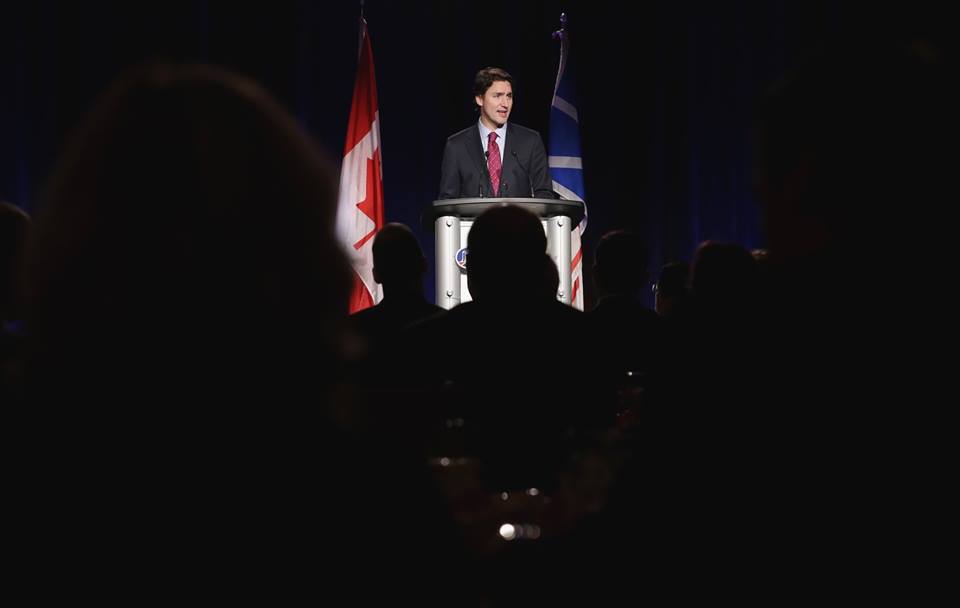
OTTAWA—The international datebook dictated that Justin Trudeau’s debut on the world stage would come at the G20 leaders’ summit this weekend in Turkey.
But had it been up to him to decide the time and place himself, the prime minister probably could not have picked a better international meeting that fits with the agenda that brought him to power with a majority government.
The key planks of Trudeau’s platform—from spurring economic growth through deficit-financed infrastructure, to tackling climate change, to helping refugees—will make a good fit with the overall G20 agenda under discussion at Turkey’s seaside resort of Antalya.
“This is a summit tailor-made for Justin Trudeau’s debut,” John Kirton, the University of Toronto expert on G8 and G20 summitry, said in a pre-summit interview from Antalya.
That said, Trudeau—who leaves Friday night—will have to do more than simply show up and listen, he added.
“He just has to be ready to actually deliver on promises of more Canadian action on these files.”
Trudeau’s first G20 summit happens to coincide with its most ambitious agenda since its 20 leaders first met during the 2008 recession, when the G20 took over as the main multilateral group to manage the global economy.
The Turkish G20 will focus on new measures on infrastructure and trade as part of “inclusive” growth—an idea to which Trudeau said Thursday he’s fully committed.
“I’ll be talking about the fact that in order to create more global growth, particularly in support of the middle class around the globe, we need to be investing,” Trudeau told a news conference.
“I believe in investment rather than austerity.”
But in Antalya, the agenda will be broadened to include additional discussions on dealing with terrorism and the refugee crisis that has literally lapped at the same Turkish shores where Trudeau and his fellow leaders will be convening.
Turkey is one of the front-line countries coping with an influx of Syrian refugees, with more than two million asylum seekers now there. The country has also been the scene of heartbreaking images of people trying to flee to Europe to find sanctuary.
The September photo of three-year-old Alan Kurdi’s dead body washed up on a beach was taken along the same scenic Turkish resort coast as the G20 summit, about 250 kilometres west.
Trudeau’s pledge that Canada will take 25,000 Syrian refugees by year’s end, and his party’s commitment of $100 million to the United Nations refugee agency, are well known, said Kirton.
He said Trudeau should consider donating more money to other UN agencies working on Syria, including the World Food Program and the World Health Organization.
That, said Kirton, would show additional support to “the multilateral organizations that are part of the Liberal narrative that ‘we love the UN,’ where, allegedly, Harper didn’t.”
Domenico Lombardi, the director of the global economy program at the Centre for International Governance Innovation in Waterloo, Ont., said Trudeau has raised expectations, but his commitment to Syrian refugees as well as his enthusiasm for tackling climate change will play favourably with fellow leaders in Antalya.
Trudeau’s arrival comes at a key time in the development of the G20 as it broadens its focus, said Lombardi. The inclusion of refugees and climate change have “potentially strong economic implications,” which makes it an “economic imperative” for the leaders to talk about.
But it is Trudeau’s infrastructure commitment that has brought Canada closer to the G20, he said.
Trudeau’s approach marks a break with past Canadian engagement with the G20, as former prime minister Stephen Harper was fond of emphasizing austerity, in the pursuit for economic growth, said Lombardi.
“You can have more of a leading role in the G20 itself because these are issues that will be an important part of the G20 agenda,” he said. “To the extent you can actively engage on those issues, you are going to be able to dominate the conversation.”
Lombardi and Kirton say Trudeau’s positions on infrastructure and climate change will stand Canada in good stead in the coming year when China takes over the rotating G20 presidency.
“Next year, China’s number one priority is going to be innovation,” said Kirton.
“You can put them together. You can have infrastructure innovation focused on climate change control. You can adopt green infrastructure investment. He’s already well-matched, and he could go with the flow more.”